smart #1 VS Nissan Leaf – Specs, Efficiency & Price Comparison
Which model is the better choice – the smart #1 or the Nissan Leaf? We compare performance (428 HP vs 217 HP), boot capacity (323 L vs 394 L), efficiency (16.80 kWh vs 16.70 kWh), and of course, the price (31700 £ vs 30800 £).
Find out now which car fits your needs better!
The smart #1 (SUV) is powered by a Electric engine and comes with a Automatic transmission. In comparison, the Nissan Leaf (Hatchback) features a Electric engine and a Automatic gearbox.
When it comes to boot capacity, the smart #1 offers 323 L, while the Nissan Leaf provides 394 L – depending on what matters most to you. If you’re looking for more power, you’ll need to decide whether the 428 HP of the smart #1 or the 217 HP of the Nissan Leaf suits your needs better.
There are also differences in efficiency: 16.80 kWh vs 16.70 kWh. In terms of price, the smart #1 starts at 31700 £, while the Nissan Leaf is available from 30800 £.
Compare all the key specs now and find out which model fits your lifestyle best!
smart #1
The smart #1 marks a significant evolution in design philosophy, merging urban practicality with modern aesthetics. Its compact size belies a spacious interior, crafted to offer a comfortable and connected driving experience. With its focus on eco-friendly motoring, the smart #1 is set to charm city dwellers seeking both efficiency and style.
details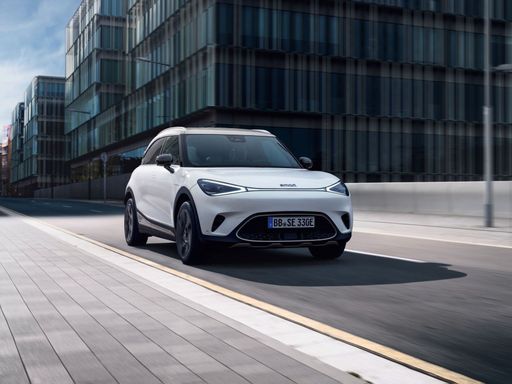 @ Smart Deutschland
@ Smart Deutschland
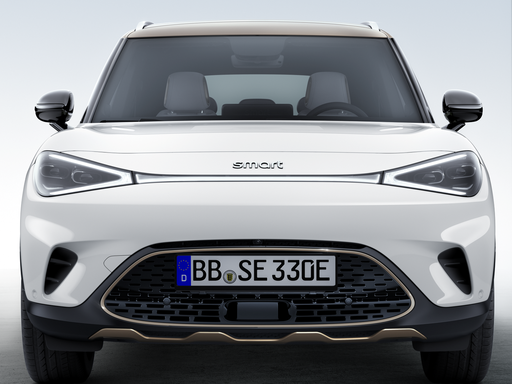 @ Smart Deutschland
@ Smart Deutschland
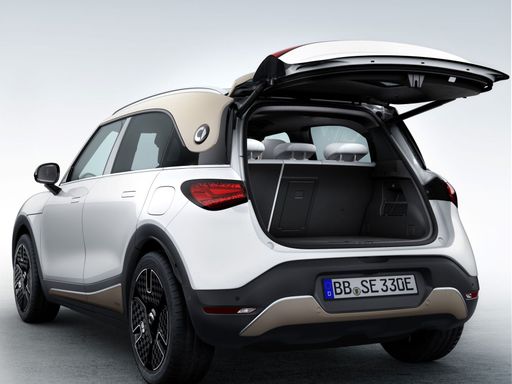 @ Smart Deutschland
@ Smart Deutschland
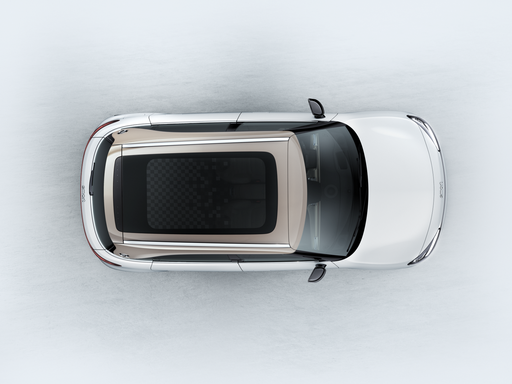 @ Smart Deutschland
@ Smart Deutschland
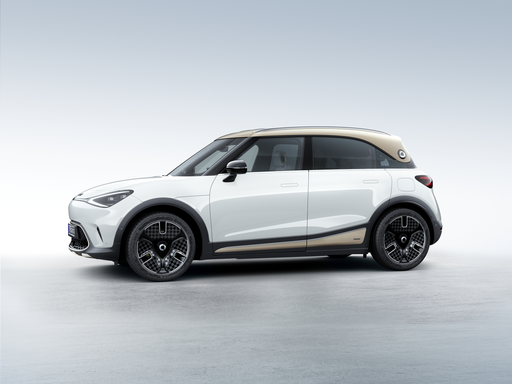 @ Smart Deutschland
@ Smart Deutschland
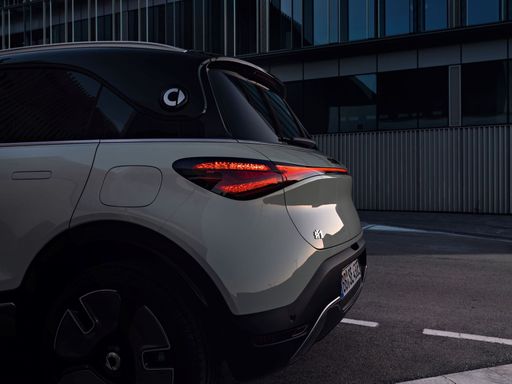 @ Smart Deutschland
@ Smart Deutschland
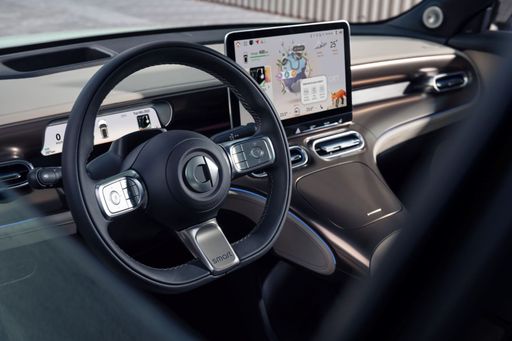 @ Smart Deutschland
@ Smart Deutschland
Nissan Leaf
The Nissan Leaf stands out as a pioneering model in the realm of electric vehicles, known for its impressive blend of practicality and eco-friendliness. It offers a smooth and quiet driving experience, making it an ideal choice for city commuting and longer journeys alike. The interior design is both comfortable and intuitive, providing drivers with a sense of modernity and ease of use.
details @ germany.nissannews.com
@ germany.nissannews.com
 @ germany.nissannews.com
@ germany.nissannews.com
 @ germany.nissannews.com
@ germany.nissannews.com
 @ germany.nissannews.com
@ germany.nissannews.com

|

|
|
|
|
Costs and Consumption |
|
|---|---|
|
Price
31700 - 45000 £
|
Price
30800 - 37200 £
|
|
Consumption L/100km
-
|
Consumption L/100km
-
|
|
Consumption kWh/100km
16.8 - 18.2 kWh
|
Consumption kWh/100km
16.7 - 17.8 kWh
|
|
Electric Range
310 - 440 km
|
Electric Range
270 - 385 km
|
|
Battery Capacity
47 - 62 kWh
|
Battery Capacity
39 - 59 kWh
|
|
co2
0 g/km
|
co2
0 g/km
|
|
Fuel tank capacity
-
|
Fuel tank capacity
-
|
Dimensions and Body |
|
|---|---|
|
Body Type
SUV
|
Body Type
Hatchback
|
|
Seats
5
|
Seats
5
|
|
Doors
5
|
Doors
5
|
|
Curb weight
1780 - 1900 kg
|
Curb weight
1580 - 1756 kg
|
|
Trunk capacity
313 - 323 L
|
Trunk capacity
385 - 394 L
|
|
Length
4270 - 4300 mm
|
Length
4490 mm
|
|
Width
1822 mm
|
Width
1788 mm
|
|
Height
1636 mm
|
Height
1540 - 1545 mm
|
|
Payload
425 - 470 kg
|
Payload
384 - 415 kg
|
Engine and Performance |
|
|---|---|
|
Engine Type
Electric
|
Engine Type
Electric
|
|
Transmission
Automatic
|
Transmission
Automatic
|
|
Transmission Detail
Reduction Gearbox
|
Transmission Detail
Reduction Gearbox
|
|
Drive Type
Rear-Wheel Drive, All-Wheel Drive
|
Drive Type
Front-Wheel Drive
|
|
Power HP
272 - 428 HP
|
Power HP
150 - 217 HP
|
|
Acceleration 0-100km/h
3.9 - 6.7 s
|
Acceleration 0-100km/h
6.9 - 7.9 s
|
|
Max Speed
180 km/h
|
Max Speed
144 - 157 km/h
|
|
Torque
343 - 584 Nm
|
Torque
320 - 340 Nm
|
|
Number of Cylinders
-
|
Number of Cylinders
-
|
|
Power kW
200 - 315 kW
|
Power kW
110 - 160 kW
|
|
Engine capacity
-
|
Engine capacity
-
|
General |
|
|---|---|
|
Model Year
2023 - 2024
|
Model Year
2019
|
|
CO2 Efficiency Class
A
|
CO2 Efficiency Class
A
|
|
Brand
smart
|
Brand
Nissan
|
smart #1
The New Era of Urban Mobility
The smart #1 emerges as a beacon of innovation and efficiency in the realm of electric vehicles. Positioned as an SUV, it seamlessly blends compact dimensions with the spaciousness and practicality that city drivers crave. Whether you're navigating bustling streets or planning longer journeys, the smart #1 is designed to cater to modern urban lifestyles.
Impressive Range and Efficiency
At the heart of the smart #1 lies its impressive range, with electric capabilities extending between 310 and 440 km, depending on the model. The efficiency of the vehicle is underscored by its electric consumption, which spans from 16.8 to 18.2 kWh/100 km. This ensures that drivers can enjoy longer trips without worrying about frequent recharges, all while maintaining an eco-friendly footprint.
Powerful Performance
The smart #1 offers a powerful driving experience, with options ranging from a rear-wheel drive boasting 272 PS to an all-wheel-drive variant pushing an exhilarating 428 PS. Acceleration is a highlight, with the most powerful model achieving 0-100 km/h in just 3.9 seconds. This performance is complemented by a smooth and responsive automatic transmission, ensuring a pleasurable driving experience.
Luxury Meets Sustainability
With seating for five, the smart #1 caters to families and urban adventurers alike. Its interior design emphasises luxury and sustainability, offering a premium feel with environmentally conscious materials. Whether you choose the Pro, Pure, or the sporty Brabus edition, each trim level provides a unique blend of features designed to enhance both comfort and driving pleasure.
Advanced Technology
Innovation is at the forefront of the smart #1, with advanced technology integrated into every aspect of the vehicle. The model year 2023 - 2024 line-up includes the latest in battery technology, featuring capacities from 47 to 62 kWh. Each version ensures optimum performance and reliability, keeping the driver connected and informed through intuitive in-car systems.
Uncompromised Safety
Safety and efficiency are paramount, as demonstrated by the smart #1's commitment to a CO2 efficiency class of A with zero emissions (0 g/km CO2), making it a leader in sustainable urban transport. Its lightweight design, weighing between 1780 and 1900 kg, and robust safety features ensure each journey is as secure as it is efficient.
Conclusion
The smart #1 represents a sophisticated blend of performance, sustainability, and technological innovation. As it stands at the cutting edge of electric vehicle technology, it redefines what drivers can expect from a modern SUV—merging style, functionality, and eco-conscious engineering into one exceptional package.
Nissan Leaf
Introduction to the Nissan Leaf: A Pioneer in Electric Mobility
The Nissan Leaf has established itself as a trailblazer in the realm of electric vehicles (EVs) since its launch. As we delve into its present-day iterations, the Leaf continues to soar in popularity due to remarkable advancements in technology and sustainability. Let's explore what makes the Nissan Leaf a standout in today's automotive market.
Power and Performance: Under the Hood of the Nissan Leaf
The Nissan Leaf boasts a power output ranging from 150 to 217 PS, depending on the battery option chosen. The vehicle's electric motor, a product of cutting-edge engineering, offers instant torque ranging from 320 to 340 Nm, resulting in impressive acceleration capabilities. The 0 to 100 km/h dash is achieved in as little as 6.9 seconds, showcasing its prowess in electric performance.
Battery Technology: Efficient Energy Management
When discussing the Nissan Leaf, battery technology is at the forefront. The available battery capacities range from 39 to 59 kWh, supporting an electric range between 270 to 385 km. This flexibility allows drivers to choose a model that best fits their driving habits, providing peace of mind for longer journeys without frequent recharging.
Sustainability: The Environmental Edge
One of the primary attractions of the Nissan Leaf is its commitment to sustainability. As an all-electric vehicle, it produces zero CO2 emissions, placing it in the top tier of the CO2-efficiency class with an 'A' rating. This clean energy approach contributes significantly to reducing environmental impact and supports Nissan's drive towards a greener future.
Design and Comfort: Aesthetic Appeal and Practicality
The Nissan Leaf is not just about efficiency; it's also designed for comfort and utility. With its sleek hatchback body and dimensions of 4490 mm in length, 1788 mm in width, and a height of up to 1545 mm, it offers ample interior space. The boot capacity ranges from 385 to 394 litres, providing sufficient storage for everyday needs. The model accommodates five passengers comfortably, ensuring a pleasant ride for everyone.
Innovations and Safety: Advanced Features for Peace of Mind
Nissan equips the Leaf with an array of intelligent features that enhance safety and convenience. The available equipment lines, including N-CONNECTA, Tekna, e+ N-CONNECTA, and e+ Tekna, offer varying levels of technology integration. ProPILOT Assist, e-Pedal, and a comprehensive suite of driver-assistance technology are just a few examples that highlight Nissan's commitment to innovation in the EV market.
Conclusion: The Nissan Leaf Continues to Lead
With prices ranging from €35,900 to €43,400, the Nissan Leaf remains an attractive choice for those looking to embrace electric mobility. It perfectly balances performance, design, and sustainability, making it a compelling choice in the competitive EV landscape. The Nissan Leaf not only represents the future of driving but also reinforces why it continues to be a leader in the electric vehicle community.
The prices and data displayed are estimates based on German list prices and may vary by country. This information is not legally binding.
